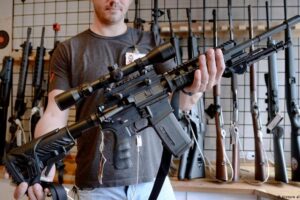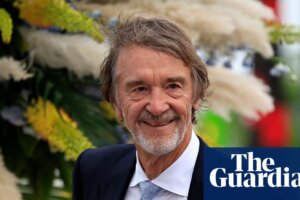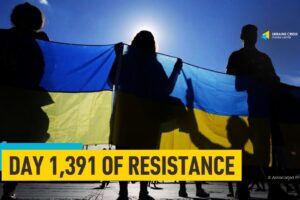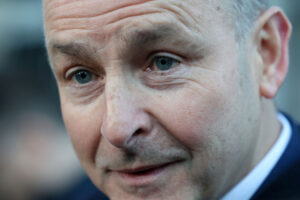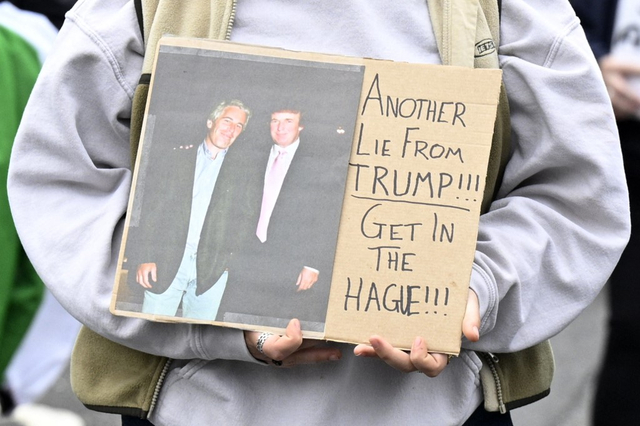
In 2004, sex-trafficker Jeffery Epstein was looking to buy a mansion in Palm Beach, Florida, and asked his then-friend Donald Trump for advice about how to move the swimming pool, according to author Michael Wolff, who has written four books about the Trump presidency.
After Epstein showed Trump the house he was bidding on for $36 million, Trump went behind his back and bid $40 million for the property, says Wolff, who told Washington Monthly’s Jonathan Alter that he is sitting on 100 hours of recorded interviews with the late Jeffery Epstein.
JOIN US ON TELEGRAM
Follow our coverage of the war on the @Kyivpost_official.
According to Wolff, Epstein was “deeply involved” at the time with Trump’s “scattered finances” and understood that Trump “didn’t have $40 million to pay for this house.” If that were the case, then it must have been “someone else’s $40 million dollars.”
Wolff says that Epstein believed Trump was using the money of Russian billionaire oligarch Dmitry Rybolovlev, who eventually wound up buying that very mansion from Trump four years later, in 2008, for $95 million – more than double what Trump had paid.
Rybolovlev made his money through his former ownership of a large stake in Uralkali, a Russian fertilizer company.
Wolff has appeared on the MeidasTouch podcast as well as a host of other media outlets since MAGA cohorts have begun calling for the release of the FBI’s Epstein files. Wolff reveals conversations with Jeffery Epstein that contradict much of what Donald Trump has said about his relationship with sex offender who, according to police, hanged himself in a New York jail cell in 2019.
Other Topics of Interest
Trump Hits India With 25% Tariffs as Patience With Putin Wears Thin
The move sharply escalates Trump’s pressure on Russia and its allies, as he warned that India’s trade practices and ties with Moscow are no longer acceptable.
On the podcast, Wolff explains how Trump’s version of his fallout with Epstein is demonstrably false.
Trump claimed on Air Force One, while travelling back to the United States from the UK on Wednesday, that his disagreement with Epstein occurred because he was “stealing” workers from Trump’s Mar-a-Lago Club, specifically spa workers.
In response to a reporter’s question about whether one of the spa workers was Virginia Giuffre – who had accused Jeffrey Epstein and his co-conspirator, Ghislaine Maxwell, of recruiting her to join their predatory ring – Trump said: “I think so… he stole her, and she had no complaints about us.”
Giuffre, who committed suicide in April 2025 while struggling with renal failure after a car accident, had also sued Prince Andrew for sexual assault.
A widely published photograph showed Prince Andrew with his hand around Ms. Giuffre’s waist. Ghislaine Maxwell, Mr. Epstein’s co-conspirator, stood at the right. Photo: AFP, via Us District Court — Southern District.
According to Wolff, after Epstein threatened to sue Trump for “fronting for someone else” in the purchase of the mansion, “Epstein believed Trump then informed the police in Palm Beach that he had a never-ending stream of underage girls in and out of his house there, and thus began his long years of legal peril.”
In his interview with Alter, Wolff also claims: “Epstein talked about how Trump liked to pick up girls, sleep with other men’s wives, liked black women, and at one point, they shared a girlfriend for almost a year.”
Conspiracy theorists – most prominent among them being Joe Rogan – have long cast doubt on the suicide explanation of Epstein’s death.
Longstanding connections with Russian mobsters
As a Manhattan real estate developer in the 1980s, Trump had no choice but to deal with the Italian mafia, which controlled the cement industry and labor unions, and would systematically extort real estate developers.
Thanks to Trump’s lawyer, Roy Cohen, who represented prominent mafiosi in the city, the future president was able to avoid many of the obstacles other real estate developers faced.
During that same period, Trump managed to solidify links with Russian organized crime, which had begun to make headway in New York City. In 1984, Russian mobster David Bogatin allegedly teamed up with Michael Franzese, a member of New York’s Colombo crime family to buy six condominiums in Trump Tower by laying $6 million in cash on the table.
In “American Kompromat,” a 2021 book by Craig Unger, former KGB officer Yuri Shvets claims that Trump had been recruited by Moscow in the 1980s.
“Donald Trump was cultivated as a Russian asset… and proved so willing to parrot anti-Western propaganda that there were celebrations in Moscow,” Shvets told the Guardian in 2021.
Shvets was a KGB major during the 1980s with cover job as a correspondent in Washington for the Soviet news agency TASS. He moved to the US permanently in 1993 and gained American citizenship.
In the book, which relies heavily on Shvets’ recollections, Unger describes how Trump first came to the Russians’ attention in 1977 when he married his first wife, Ivana Zelnickova, a Czech model. In 1979, once she married Donald Trump, already a notable American real estate mogul, Czech Secret Service spied on Ivana at home and abroad, and reportedly questioned her father about the couple after his trips to the United States. Trump became the target of a spying operation overseen by Czechoslovakia’s intelligence service in cooperation with the KGB.
Three years later, Trump opened his first big property development, the Grand Hyatt New York hotel near Grand Central Station. Trump bought 200 television sets for the hotel from Semyon Kislin, a Soviet émigré who co-owned Joy-Lud electronics on Fifth Avenue, near the hotel.
Shvets told the Guardian that Joy-Lud was controlled by the KGB and Kislin worked as a so-called “spotter agent” who identified Trump, a young businessman on the rise, as a potential asset. Kislin denied that he had a relationship with the KGB.
Then, in 1987, Trump and Ivana visited Moscow and St. Petersburg for the first time. Shvets said he was fed KGB talking points and flattered by KGB operatives who floated the idea that he should go into politics.
A 2017 Politico article by Luke Harding sustains that “according to files in Prague, declassified in 2016, Czech spies kept a close eye on the couple in Manhattan.”
Unger, however, has been quick to point out that the Trump recruitment process was almost fortuitous. “He was an asset,” Shvets said of Trump. “It was not this grand, ingenious plan that we’re going to develop this guy and 40 years later he’ll be president. At the time it started… the Russians were trying to recruit like crazy and going after dozens and dozens of people.”
Shvets noted that Trump was the perfect target: “His vanity, narcissism made him a natural target to recruit. He was cultivated over a 40-year period, right up through his election,” he said, referring to the 2016 election.
